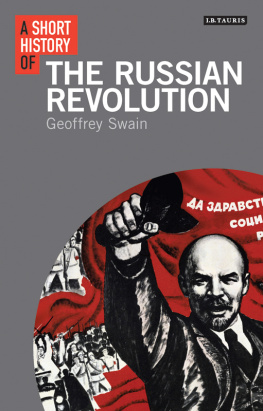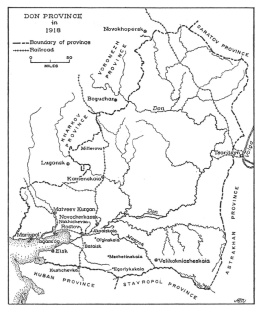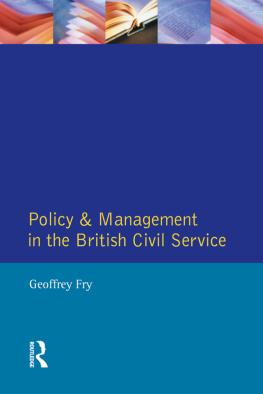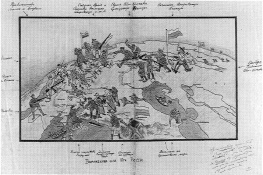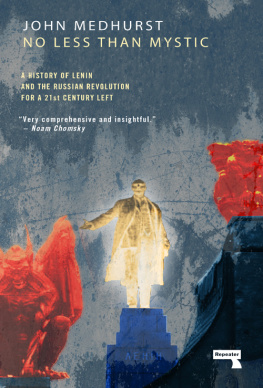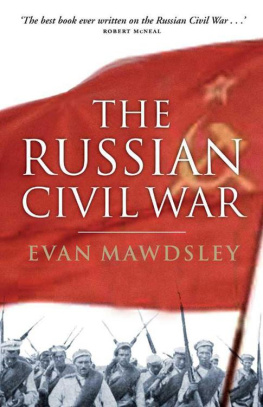The Origins of the Russian Civil War
ORIGINS OF MODERN WARS
General editor: Harry Hearder
Titles already published:
THE ORIGINS OF THE FRENCH REVOLUTIONARY WARS
T.C.W. Blanning
THE ORIGINS OF THE CRIMEAN WAR
David M. Goldfrank
THE ORIGINS OF THE ITALIAN WARS OF INDEPENDENCE
Frank J. Coppa
THE ORIGINS OF THE AMERICAN CIVIL WAR
Brian Holden Reid
THE ORIGINS OF THE WARS OF GERMAN UNIFICATION
William Carr
THE ORIGINS OF THE SOUTH AFRICAN WAR, 18991902
Iain R. Smith
THE ORIGINS OF THE RUSSO-JAPANESE WAR
Ian Nish
THE ORIGINS OF THE FIRST WORLD WAR
(Second Edition)
James Joll
THE ORIGINS OF THE RUSSIAN CIVIL WAR
Geoffrey Swain
THE ORIGINS OF THE SECOND WORLD WAR IN EUROPE
P. M. H. Bell
THE ORIGINS OF THE SECOND WORLD WAR IN ASIA AND THE PACIFIC
Akira Iriye
THE ORIGINS OF THE GREEK CIVIL WAR
David H. Close
THE ORIGINS OF THE KOREAN WAR
Peter Lowe
THE ORIGINS OF THE VIETNAM WAR
Anthony Short
THE ORIGINS OF THE ARAB-ISRAELI WARS
(Second Edition)
Ritchie Ovendale
First published 1996 by Addison Wesley Longman Limited
Second impression 1996
Published 2013 by Routledge
2 Park Square, Milton Park, Abingdon, Oxon OX14 4RN
711 Third Avenue, New York, NY 10017, USA
Routledge is an imprint of the Taylor & Francis Group, an informa business
Copyright 1996, Taylor & Francis.
All rights reserved. No part of this book may be reprinted or reproduced or utilised in any form or by any electronic, mechanical, or other means, now known or hereafter invented, including photocopying and recording, or in any information storage or retrieval system, without permission in writing from the publishers.
Notices
Knowledge and best practice in this field are constantly changing. As new research and experience broaden our understanding, changes in research methods, professional practices, or medical treatment may become necessary.
Practitioners and researchers must always rely on their own experience and knowledge in evaluating and using any information, methods, compounds, or experiments described herein. In using such information or methods they should be mindful of their own safety and the safety of others, including parties for whom they have a professional responsibility.
To the fullest extent of the law, neither the Publisher nor the authors, contributors, or editors, assume any liability for any injury and/or damage to persons or property as a matter of products liability, negligence or otherwise, or from any use or operation of any methods, products, instructions, or ideas contained in the material herein.
ISBN 13:978-0-582-05968-9 (pbk)
British Library Cataloguing-in-Publication Data
A catalogue reocrd for this book is available from the British Library
Library of Congress Cataloging-in-Publication Data
Swain, Geoff.
The origins of the Russian Civil War / Geoffrey Swain.
p. cm. -- (Origins of modern wars)
Includes bibliographical references and index.
ISBN 0-582-05967-4 (csd). -- ISBN 0-582-05968-2 (ppr)
1. Soviet UnionHistoryRevolution, 19171921. I. Title.
II. Series.
DK265.S9 1996
947.0841--dc20
95-13287
CIP
Set by 7 A in Bembo
To Di
Dr Geoffrey Swains account and interpretation of the complex and ill-fated developments that preceded the Russian Civil War is at once original and riveting. His book is the fourteenth in this series, and the second dealing with a civil war, following Dr David Closes Origins of the Greek Civil War. It is no coincidence that both wars occurred towards the conclusions of major international wars, and involved intervention by the great powers. International wars either stir up ideological rivalries, as in the Greek case, or give revolutionary movements a chance to assert themselves, as in the Russian case. Ideological rivalries lead to peculiarly bitter and tragic confrontations in the wake of the international war itself.
Dr Swain shows that in the initial crisis which was ultimately to lead to civil war, Kornilov, encouraged by Zavoiko, was the aggressor, but when the civil war eventually took shape it owed much to the ruthlessness and dishonesty of Lenin all, of course, in the name of the high cause of world revolution. In The Russian Revolution and the Civil War , written on 89 September 1917, Lenin considered the alternatives of a peaceful coalition of Bolsheviks, Mensheviks and the Social Revolutionaries, on the one hand, and civil war, on the other. In Swains words: there was no suggestion in Lenins writing that the civil war option could harm the revolution or that the peaceful transfer of power was in any way more desirable. A few days later Lenin assumed that civil war was inevitable, and his assumption was self-fulfilling. Lenins argument, in greater detail, was that so long as the slogan all power to the Constituent Assembly masks the slogan down with soviet power civil war is inevitable, for we shall not for anything in the world surrender soviet power.
The question of when, if ever, war becomes inevitable, so often considered in this series, is thus put in a new light by Swains study. Lenin believed that, given certain conditions, war was inevitable. The argument is perhaps tautological. War can either be avoided or it cannot be avoided. To say that it is inevitable within certain conditions is to say that it is not inevitable. But Lenin believed that so long as the enemies of proletarian power continued to exist there must be a dictatorship of the proletariat, and it must be realised that such a dictatorship was a state of war. Here, then, was Clausewitzs war as a continuation of policy in a heightened sense.
Lenin was only too ready to accept war, a total war against the exploiters of the people, and he would have regarded the question of war guilt, another question often considered in this series, as being hardly worth asking. He fully accepted responsibility, but only because conditions made it inevitable that he should lead the proletariat in their ultimate struggle.
Swains study suggests an interesting paradox. Civil war might have been avoided in the early spring of 1918 if a united socialist front had been formed against Germany. Such a front came close to formation, but it would have involved a continuation of the war, in alliance with France and Britain, against Germany. One kind of war (an international war) would have prevented another kind of war (the civil war). This kind of paradox seems unique in the series. There have been examples of preventive wars wars apparently carried out to prevent other kinds of wars but the idea of a civil war which would have as one of its aims the cessation of an international war is a novelty, though it is perhaps surprising that such wars have not occurred more frequently in history.
Dr Swains book provokes such considerations, and is immensely valuable as a study of a moment in Russian history when vast vistas were opened and sometimes closed vistas of great importance for the future of the world.
Harry Hearder
Three people associated with this study require individual mention. I owe a very special debt to Dr V.P. Butt of the Russian Academy of Sciences; his position as co-ordinator of the project on the history of the Russian Civil War meant he could give invaluable advice and support, as well as hospitality, at a time when the Academy itself was experiencing a period of traumatic change. As to my studies in England, they would not have been possible without the assistance of Mrs C. Menzies, Slavonic Reading Room librarian in the Bodleian Library, Oxford. Finally, Jane Goulden read the manuscript and made many helpful suggestions. A number of institutions also helped towards the production of this book; in particular the University of the West of England provided funding and study leave, while my visits to Moscow would not have been possible without the support of a generous grant from the Nuffield Foundation.


